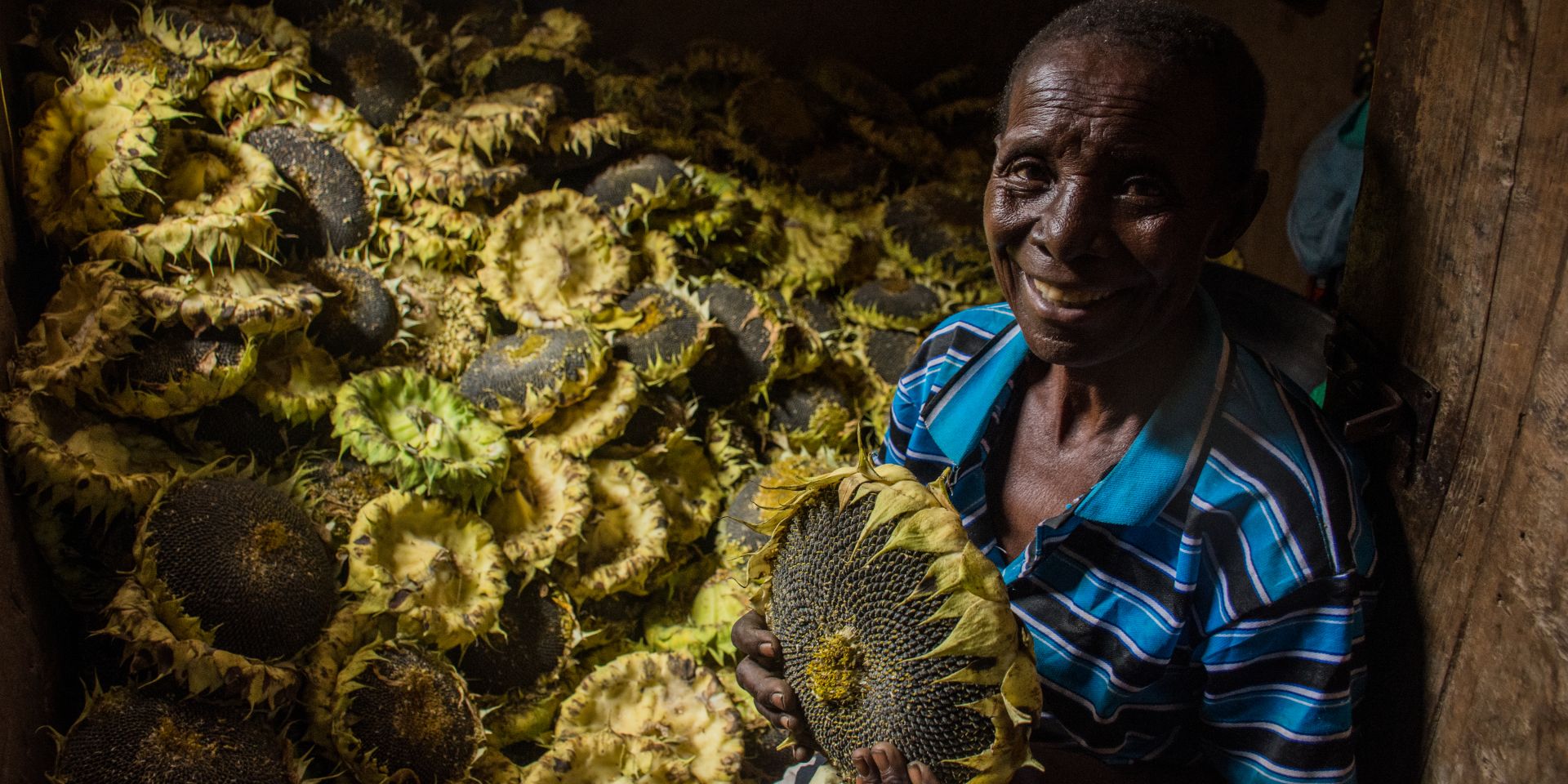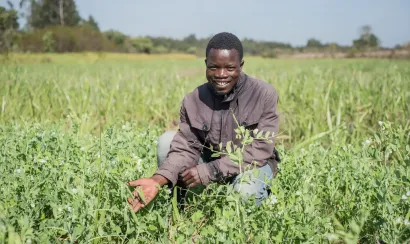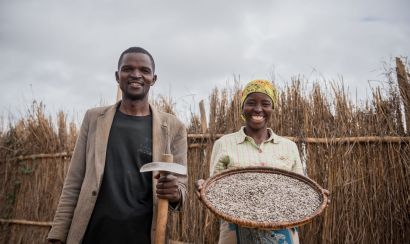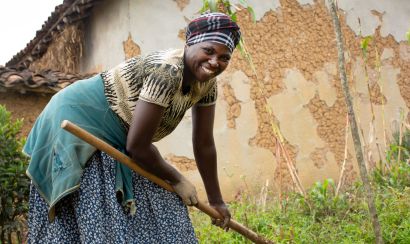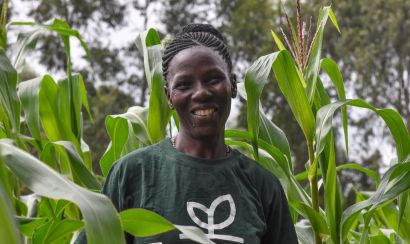Seeds of Change: How early-maturing sunflower seeds are changing farmers’ fortunes
In 2022, facing a weather forecast of reduced rainfall and extended dry periods throughout the season, Laban Chaula made a decision: he was going to plant sunflowers. Farming food crops has proven to be a learning curve for Laban. Initially, he relied on setting aside a portion of his harvest to replant the following season. After joining One Acre Fund, the training he received allowed him to make more informed decisions – as a result, he can now afford to buy improved seeds and fertilizer. So when One Acre Fund advised farmers to plant fast-maturing, drought-resistant crops like sunflowers in response to the poor weather forecast, Laban immediately enrolled.
“I have learned a lot from One Acre Fund. I believe that my improved yields – from 5 bags of maize two years ago to the current 12 from an acre of land – are a result of the training and high-quality inputs I receive from the organization.” Laban says.
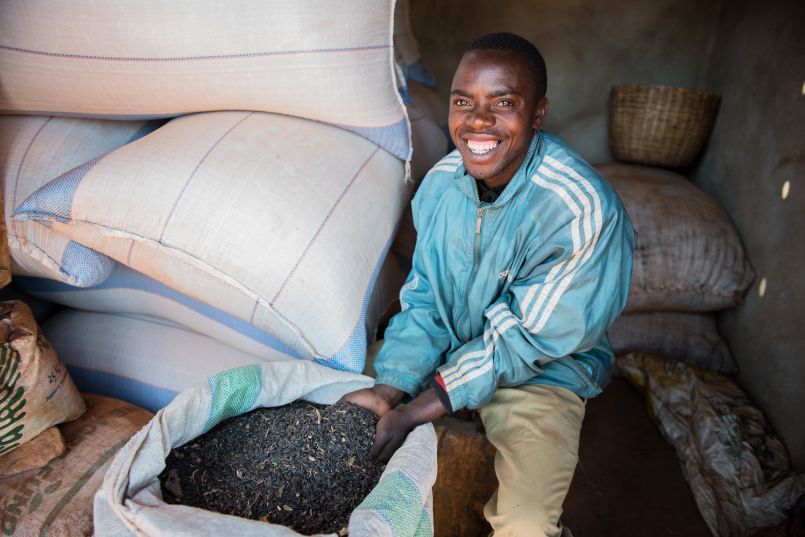
Rural smallholder farmers like Laban are among the most vulnerable to the impacts of climate change; they depend heavily on rain-fed agriculture and have limited access to quality and reliable farming inputs and resources. The need for these farmers to adapt to climate change and take steps to mitigate the risks that come with changing weather patterns cannot be overstated.
Adapting agriculture to changing weather
Changing weather patterns have affected agricultural production, for example, rainfall patterns that used to be very predictable are now increasingly erratic, with rains arriving months late or not at all – and too much or too little rainfall when it does start to rain. This has led to a shift in planting and harvesting seasons and a decline in harvests. While early-maturing and drought-resistant crops cannot completely eliminate the impact of extreme weather, they are one of the most effective ways of adapting to climate challenges.
“One Acre Fund told us that we would experience less-than-usual rain and advised that we plant early-maturing weather-resilient crops,” says Laban, who harvested eight bags of sunflower seeds three months later.
Improving livelihoods with sunflowers
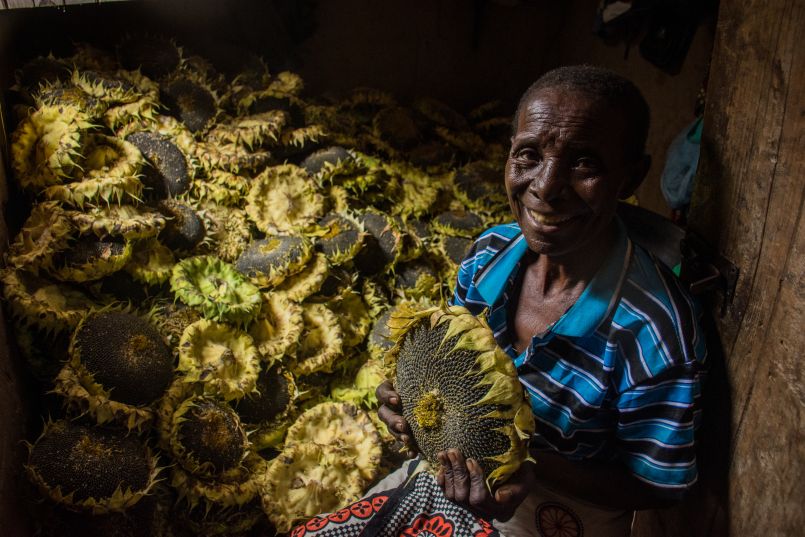
In 2022, One Acre Fund ran a trial in Tanzania with 2,000 farmers to gauge the appetite for the adoption of, as well as the impact of, early-maturing sunflower seeds. The farmers in the trial were given these new seeds and asked to compare their performance with the old sunflower seeds they were used to planting. Trial results showed that farmers were satisfied with the performance of the early-maturing sunflower seeds, and many of them expressed a willingness to plant these seeds again in the next season. The farmers preferred these seeds due to the larger harvests they got, their faster maturation, as well as their drought resistance and pest and disease resistance. Overall we found that these seeds were a much more reliable choice for farmers facing changing weather patterns.
Early-maturing seeds can increase harvests by reducing the time it takes for the seeds to germinate and mature. This means farmers can plant and harvest multiple crops in a single growing season boosting the amount they have to sell and increasing their income.
The shorter growing periods mean farmers can harvest the crop earlier, allowing them to sell their produce at a higher price before the market becomes saturated. This was true for Eliza Ngela, another smallholder from Wanging'ombe District in Tanzania, who trialed the new sunflower seed.
“The sunflower seeds we get from One Acre Fund grow and mature faster than the ones we are used to, which usually take up to six months – I planted and harvested in five months, which means I can be ready for market faster. I plan to take the oil extract to market soon,” Eliza says.
Capitalizing on increasing demand for sunflower oil
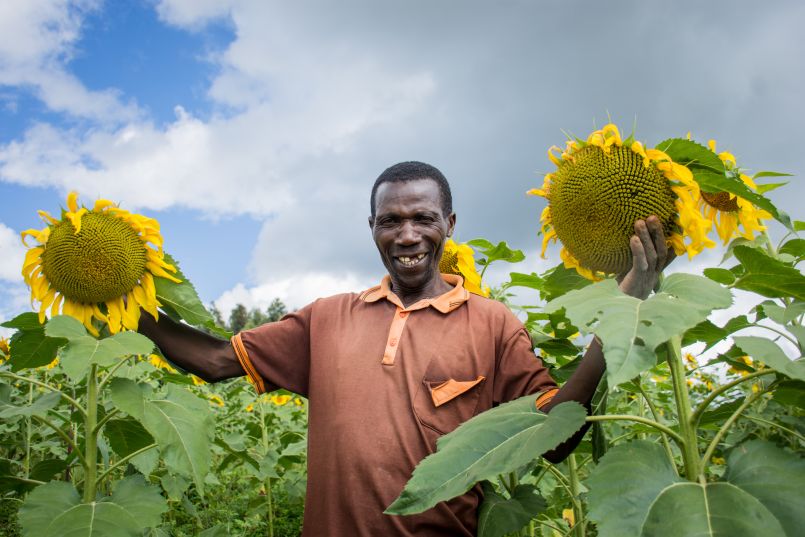
In Tanzania, sunflower seeds are becoming increasingly valuable, and there's a growing demand for their oil. This demand is being fueled by a number of factors, including disruptions in global markets caused in part by the war in Ukraine. The Tanzanian government is working towards developing the sunflower oil market within the country by encouraging farmers to grow sunflowers, with a promise to champion the use of domestically produced oil. This policy is creating better market opportunities and higher prices for farmers, which translates into higher incomes. Farmers can expect to earn over 1,000,000 TZshs ($424 USD) in profit per acre of sunflowers grown.
For Ezekia Lyaumi, also from Wanging'ombe District, sunflowers are more profitable to farm than staples like maize.
“Due to low maize prices and the high cost of fertilizers, I shifted to sunflowers which perform better in the market. What’s more, while I wait for the market to adjust, I can make sunflower oil and sell it for some extra income,” Ezekia says.
Early maturing sunflowers contribute to the economic well-being and prosperity of farmers by enabling them to get to market early, diversify their income, and create value-added products like sunflower oil. And figuring out the kinds of crops and crop varieties farmers need most in their changing environments – high-yielding, disease-resistant, drought-tolerant, or early-maturing – is crucial to developing resilient farming systems. Early-maturing seeds, like the hybrid sunflower seeds we’re offering in Tanzania, are an important agricultural innovation helping smallholders build resilience and adapt to changing weather patterns.
